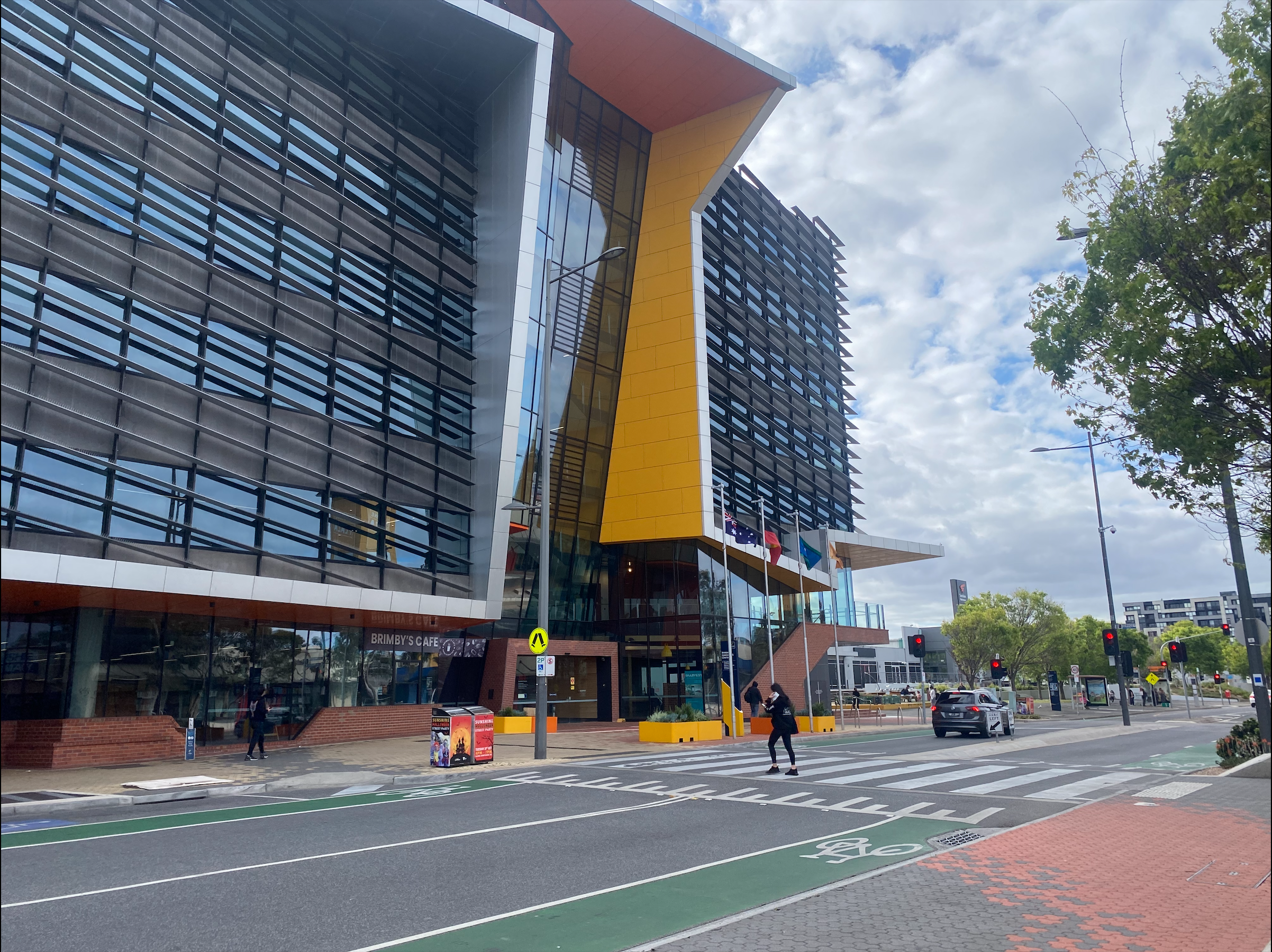The Fight Against The Far Right
A breakdown of the impact towards the LGBTQIA+ community in the Inner-West.
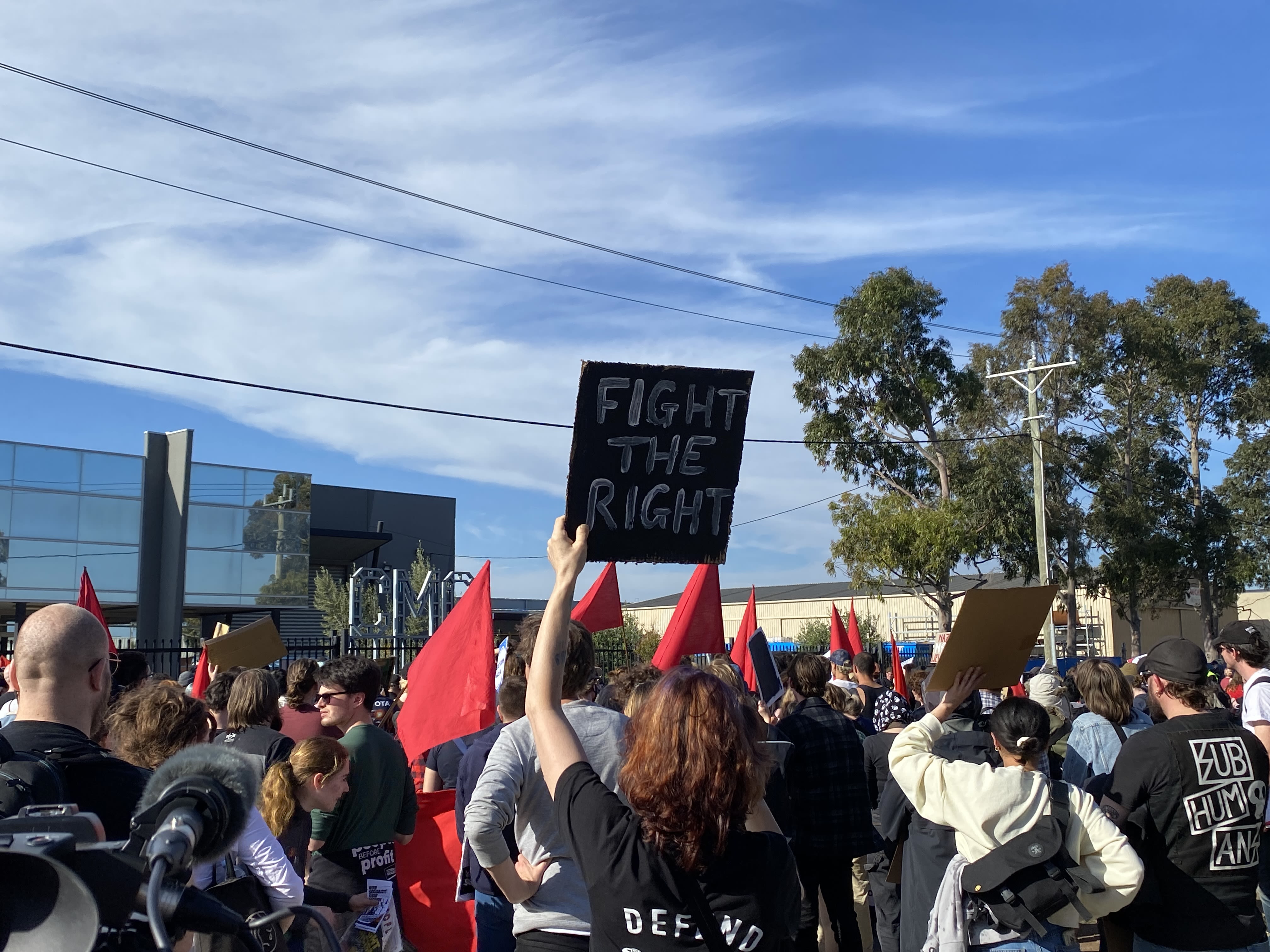
Minorities have always been targets, because of differing characteristics from those of a higher power or social standing.
They are a subgroup of a population who are subjected to oppression and discrimination, primarily because of their religion, race, disability, sexuality gender or other differentiating factors that are seen as ‘different’ from the community’s ‘norm’.
This in turn causes an abundance of issues, not only socially, but for the individual person who is being affected.
Historically, minorities have always been present and suffered the backlash from more dominant groups. In this case, we are looking are minority groups in the inner-western suburbs of Melbourne, primarily the LGBTQIA+ community who have been impacted by protests, rallies, comments, backlash and actions from others.
These areas of Melbourne have seen a steady growth of minorities, as well as members and allies of the LGBTQIA+ community.
For Anastasia Le, a Vietnamese trans woman, the progress has been more than just a welcome sight.
Having resided and worked in Sunshine West for most of her life, she had a deep understanding of the area regarding community values. It was there where she first embraced her womanhood and began her journey of self-acceptance and realisation.
While Anastasia had described Sunshine West as having colour, acknowledging the area's growth, she admitted that many things still needed to change.
“I can see the work that needs to be done especially around LGBTQIA+ youth of multicultural backgrounds,” Anastasia had said.
She had acknowledged the widespread representation that is evident today, with more public events, and more inclusion in the local councils. With reference to the work done by the state government on inclusive language in the Victorian Public Sector, Anastasia feels that while the progress has been beneficial, more still needs to be addressed to ensure that this work is not just performance.
“There is that encouragement for the councils to take part in the Pride March and to implement LGBTQIA+ action plans which is good, and what Brimbank and Maribyrnong Council are doing right now are working towards public safety plans,” she stated.
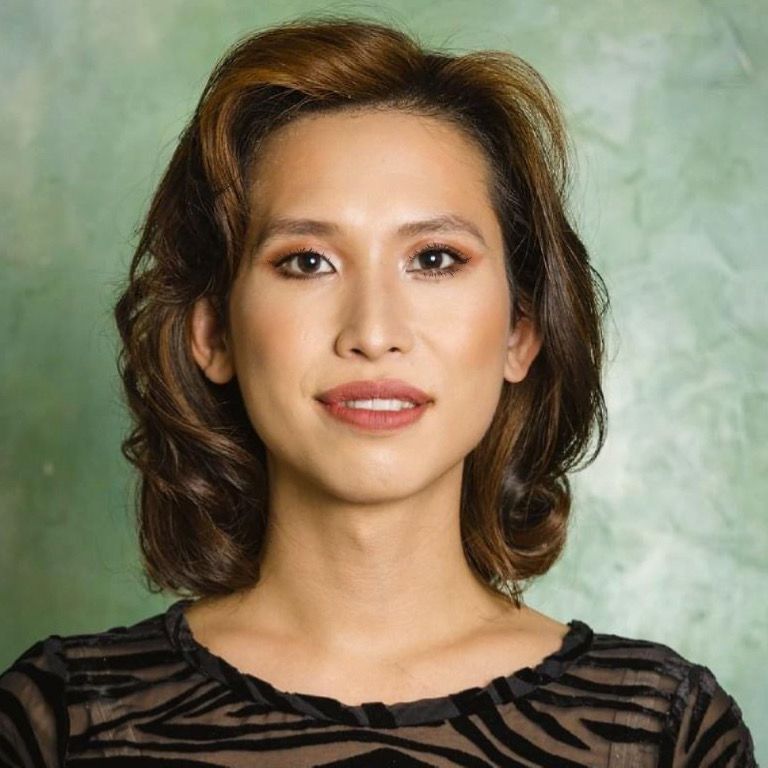
Anastasia, a Support Worker operating around the inner-west.
Anastasia, a Support Worker operating around the inner-west.
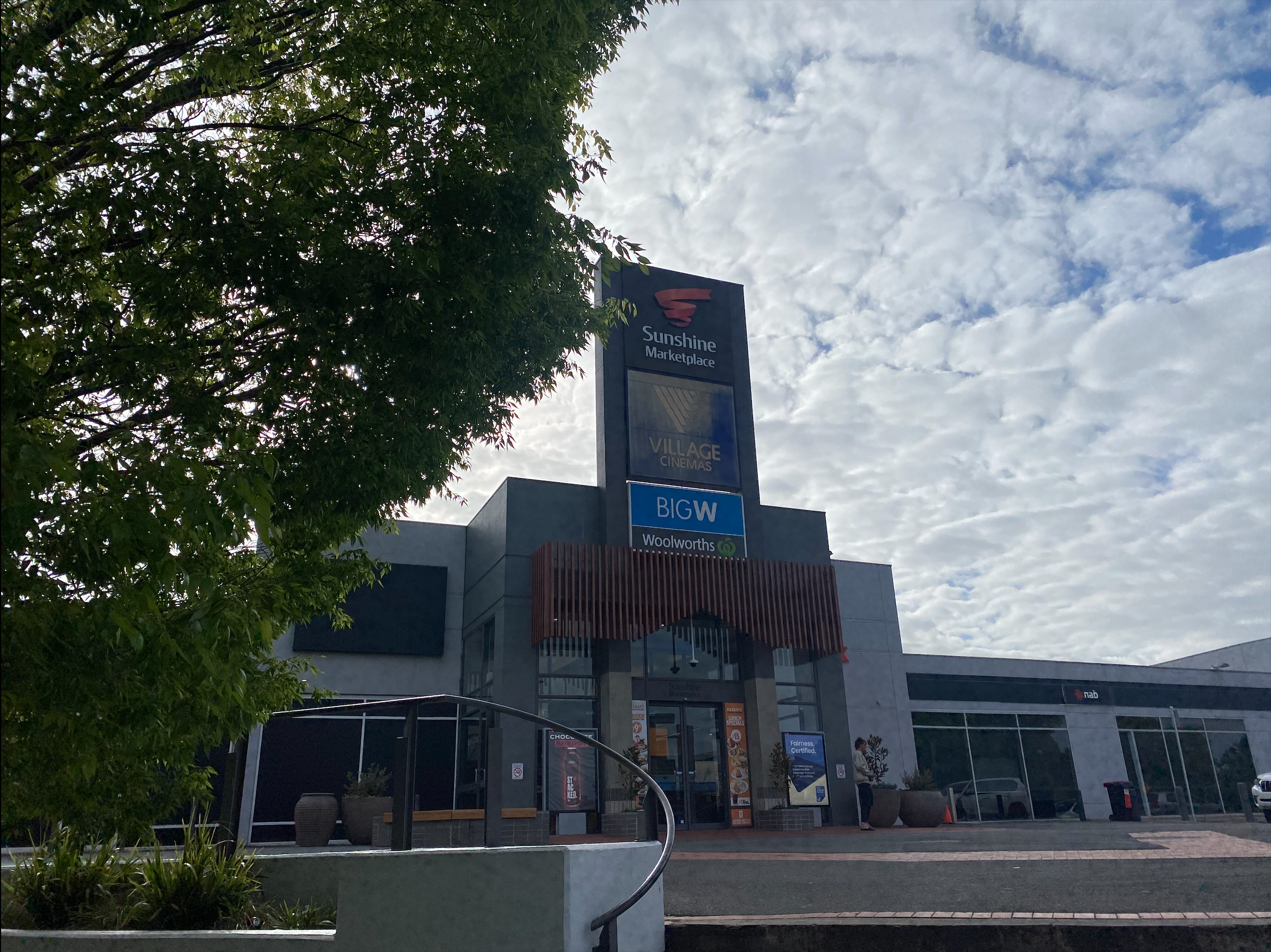
When looking at these minority groups, it is important to understand the demographic of Melbourne’s western suburbs. The 2016 census conducted by the Australian Bureau of Statistics found that 27.9 per cent of people had both parents born in Australia, while 55.7 per cent of people had parents born overseas.
The Rainbow Local Government campaign, spearheaded by the Victorian Pride Lobby has been in full swing since 2016 and is at the forefront of the political endeavours of advocacy for the LGBTQIA+ community. Acquiring over 973 local council pledges to pro-LGBTQIA+ initiatives over the years, the campaign has some strong allied positions in the inner-western suburbs of Melbourne.
To name a few, CR Jasmine Nguyen for Harvester Ward in Brimbank, CR Sarah Carter for River Ward in Maribyrnong and CR Tony Briffa for Cherry Lake Ward in Hobson’s Bay, have all fully pledged to support the priorities of LGBTQIA+ people.
Sean Mulcahy, a Research Officer at the Australian Research Centre in Sex, Health, and Society stressed the importance of showing that others care and that people in the queer community are not alone, especially in the political landscape.
“We ran a pledge asking candidates to support pride and inclusion initiatives in their council, including flying a rainbow flag, participating in pride events and working towards the Rainbow Ticket Accreditation,” Sean said.
According to Rainbow Health Australia, the tick is a quality framework that helps health and human services show to the community that they are a safe and inclusive space, with affirming services and employers for the LGBTQIA+ community.
Accredited organisations include Thorne Harbour Health, an organisation with a focus towards PLHIV treatment and counselling and VincentCare, which supports individuals who are currently or at risk of homelessness.
In addition, Sean is part of the Rainbow Community Angels and an active voice in the Campaign. He had stressed the importance of having councillors becoming role models in positions of power, with the Ticket Accreditation helping show the public that health and human services organisations are a safe and inclusive space for those in the LGBTQIA+ community.
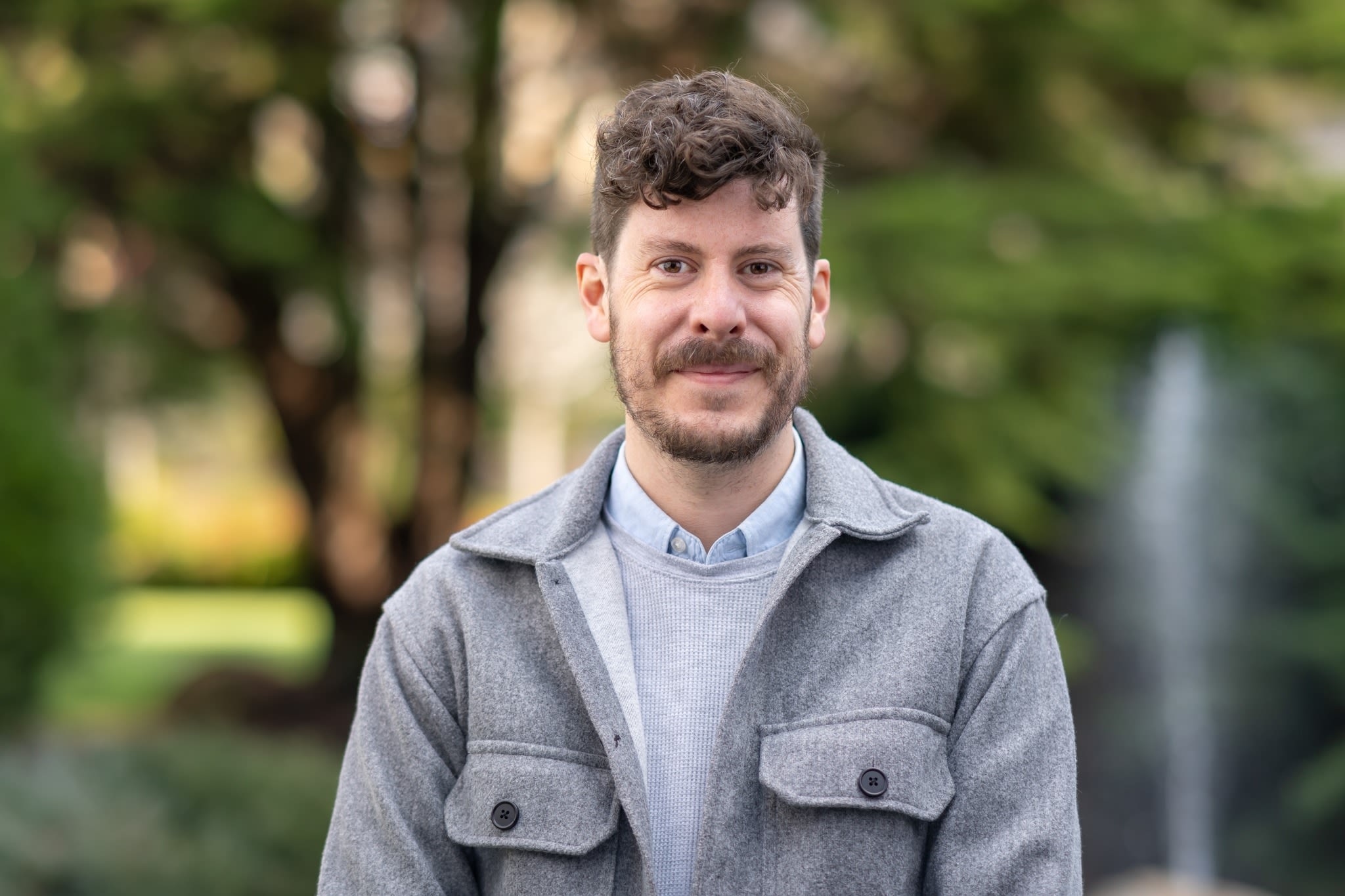
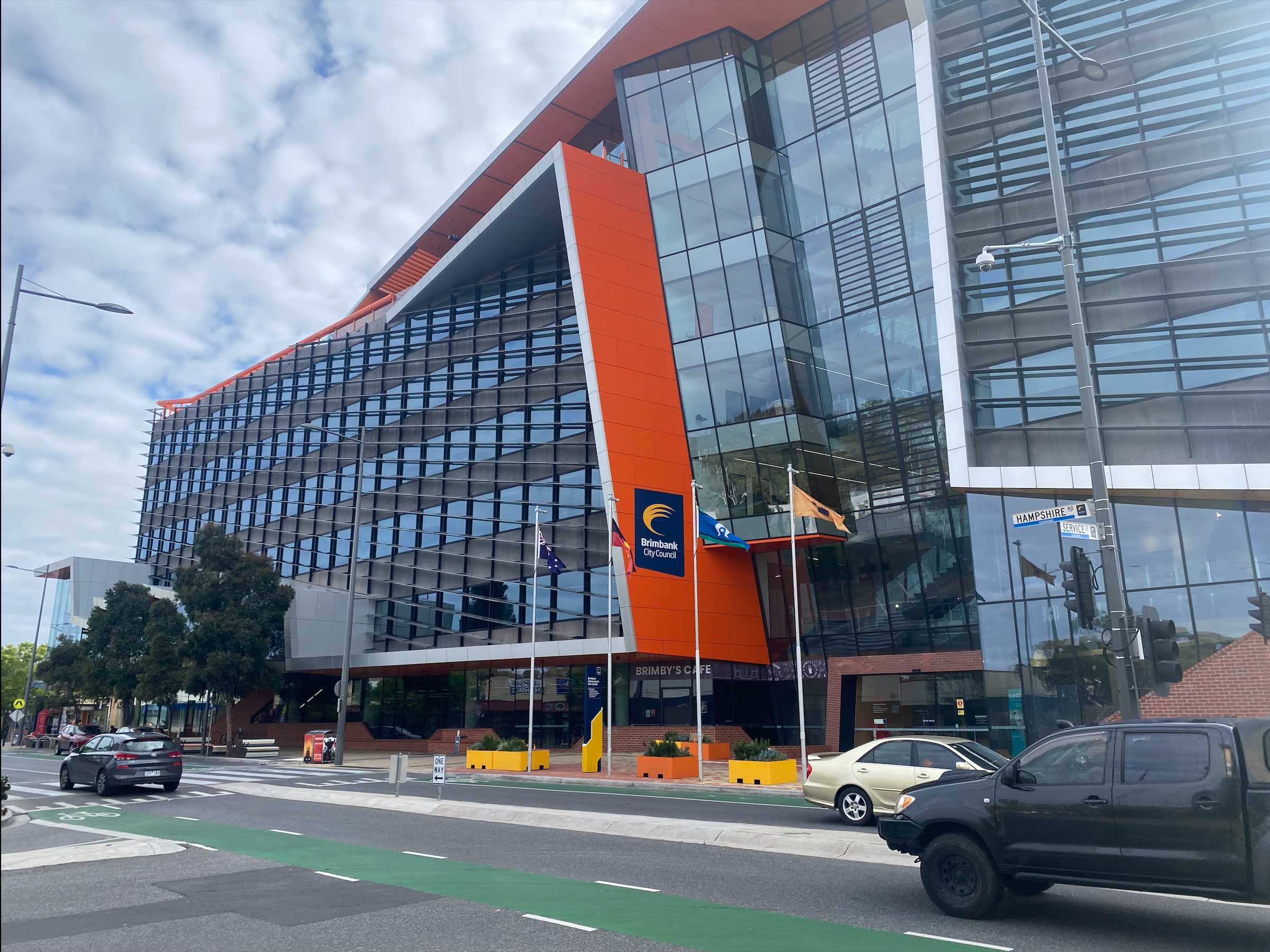
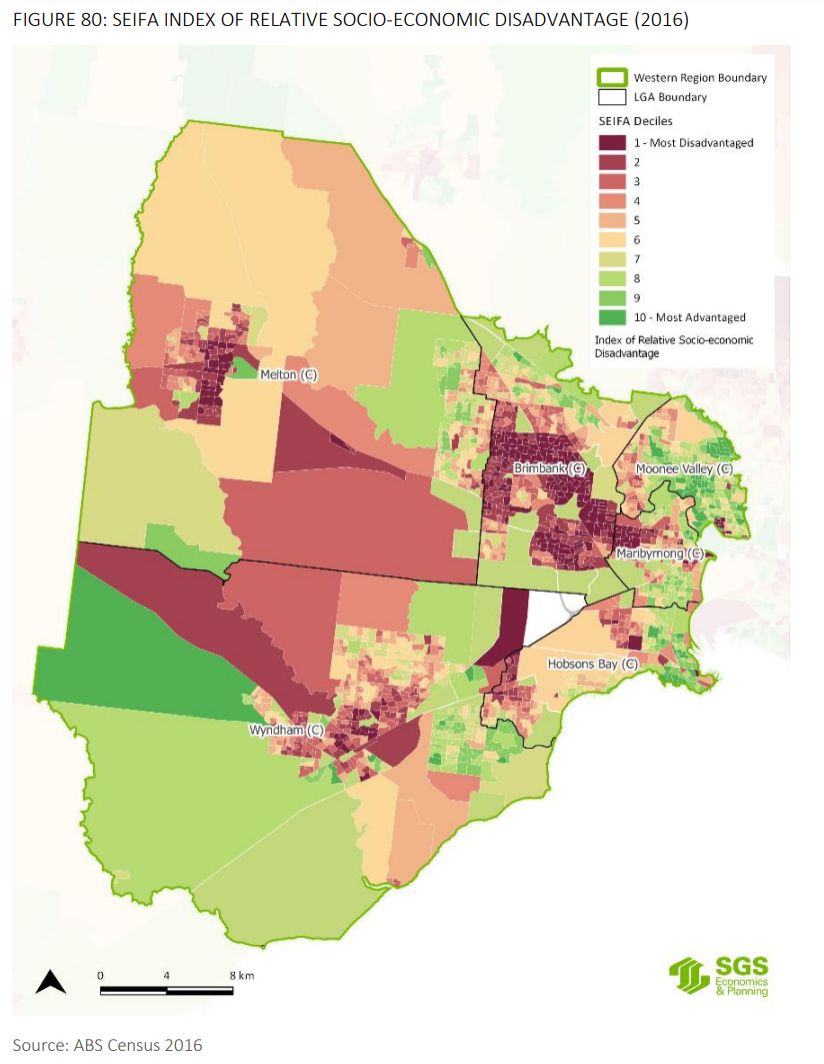
“These pledges mean that we’ve got people who support LGBTQIA+ initiatives in every single Melbourne council, and that’s the result of running a campaign and encouraging people to take a pledge,
“And I think people looked at that and saw somebody that would stand up for their community on issues that they care about.”
The City of Melbourne’s Socio-Economic Indexes for Areas (SEIFA) in 2016 revealed how disadvantaged the western suburbs are, with the majority of the area labelled under a high index, meaning these areas were part of the most disadvantaged in the Western Region Boundary.
This map illustrates the rates of advantage and disadvantage relative to the national average within the West, considering:
Occupation; Education Level; Housing; Health Status; English Language Proficiency; Marital Status; Health and Disability Status; Household Composition; Internet Access; Household Income.
The Western Metro Region’s areas that are most disadvantaged are clustered around places such as Wyndham, Melton, Maribyrnong and parts of Brimbank. However, there are still areas that show variations such as Moonee Ponds and Essendon, which have been classed as more advantaged, whereas a few other disadvantaged areas are present in Keilor and parts of Flemington.
In addition, reflected by the SEIFA is a pattern that highlights these areas of disadvantaged suburbs that experience a broad range of structural economic changes. Sunshine, Brimbank, Hoppers Crossing are some of the many areas that fall under this category.
While the western suburbs aren’t the only areas that are underprivileged, it is key to recognise the fact when looking at why they seem to be susceptible to such great attention from far-right groups.
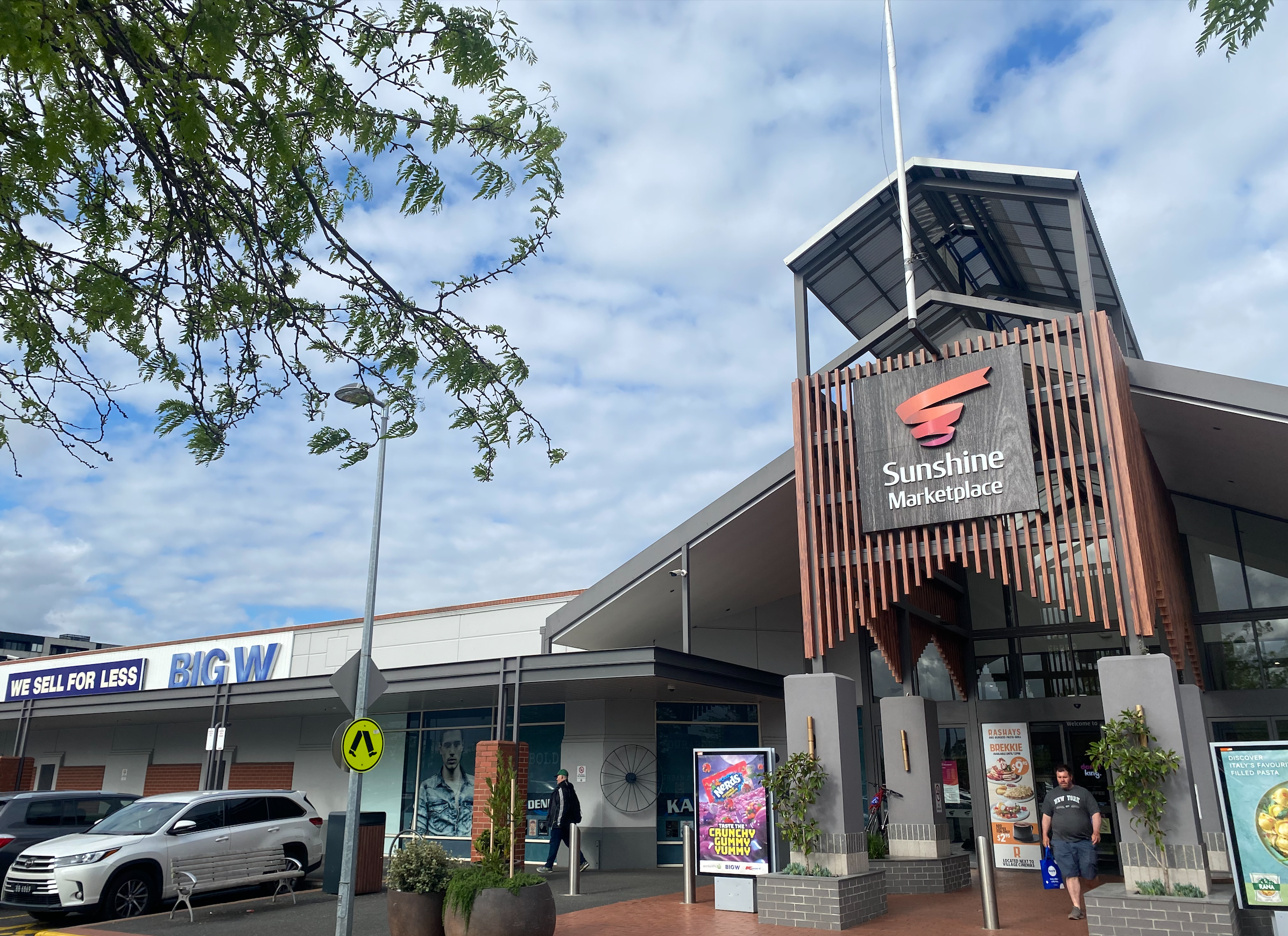
For the councils of Brimbank and Maribyrnong, the safety of the public has been a focus and Anastasia believes that there should be more done to target the roots of this goal.
As the state, and especially the inner west continues to grow in diversity, she believes that the accomplishment of this milestone would be beneficial towards the children and or youth who are from multicultural backgrounds and are part of the LGBTQIA+ community that should have access to some level of support.
“Intersectionality should be part of the work that we’re focusing on, and given my line of work, upbringing, and personal journey, I see a lot more disadvantaged people in our marginalised community,
“They are my passion and I want to have more grassroots initiatives so that they can have a voice around every discussion we have about things such as the LGBTQIA+ action plan,” she said.
Brimbank City Council’s 2023 – 2027 LGBTQIA+ action plan has the goal of creating an inclusive and safe community, with the values of the people and their diversity being prioritised. In the plan’s draft, the council’s approach firstly relies on advocacy, then to deliver by collaborating through programs, services, activities, and events for and with the people.
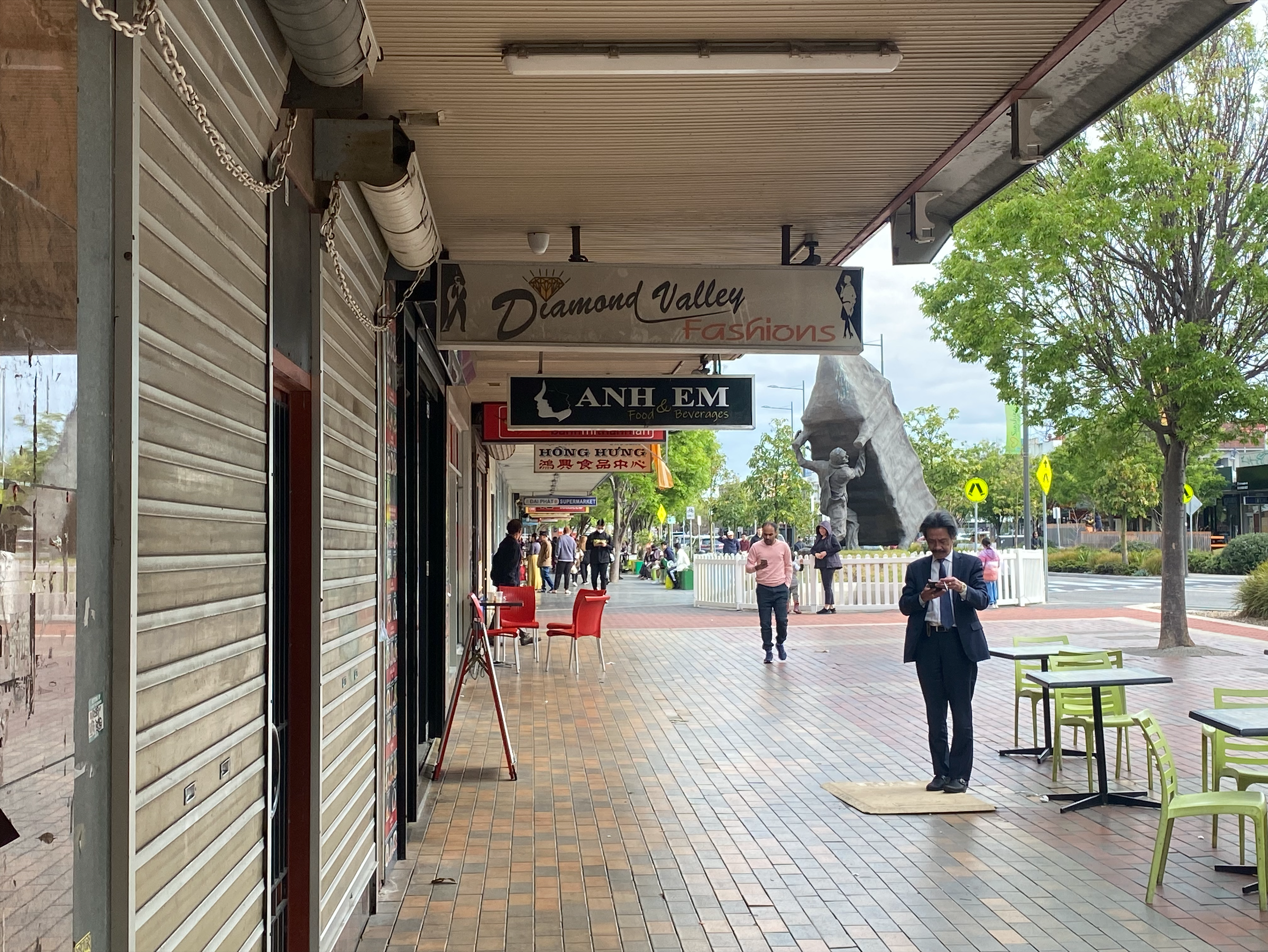
Sourcing opportunities to work with and alongside other LGBTQIA+ service providers and future planning to ensure council infrastructure, activities and events would meet the needs of the entire community.
As a result of community feedback on the council’s draft, four key priorities were developed:
Health and Wellbeing
- Social cohesion and connectedness, understanding of the LGBTQIA+ community .
Safety and Safe Places
- Building strong systems and partnerships, improving the quality of standards and practices.
Inclusion and Empowerment
- Participation and leadership, to recognise and celebrate LGBTQIA+ contributions.
Organisational Leadership and Advocacy
- Data collection, promote diverse, inclusive and respectful organisational culture.
However, while there has been widespread support, the local communities remain under fire from the surge of far-right groups in Melbourne, which have included sects like My Place and Reignite Democracy Australia. Both these parties have been suspected of interrupting council meetings on topics such as gender-neutral toilets.
Sean expressed his disappointment about the entire situation, stating that it was unfortunate that young children had to be involved with their agenda.
“They’re threatening, they’re creating an intimidating presence for people that are just going out there to do their everyday business,
“From our perspective we just want children to be able to go to the library, read a few books, have a fun time and that’s not something worth protesting against,” Sean stated.
When asked about the impact that the recent surge of far-right groups has had, and their continued hostile presence around the queer community, Anastasia recognised that it won’t take long for serious damage to be done.
“Without the support in place from family, friends and the community a young person who is still going through their journey would be impacted in their health, mental and emotional wellbeing.”
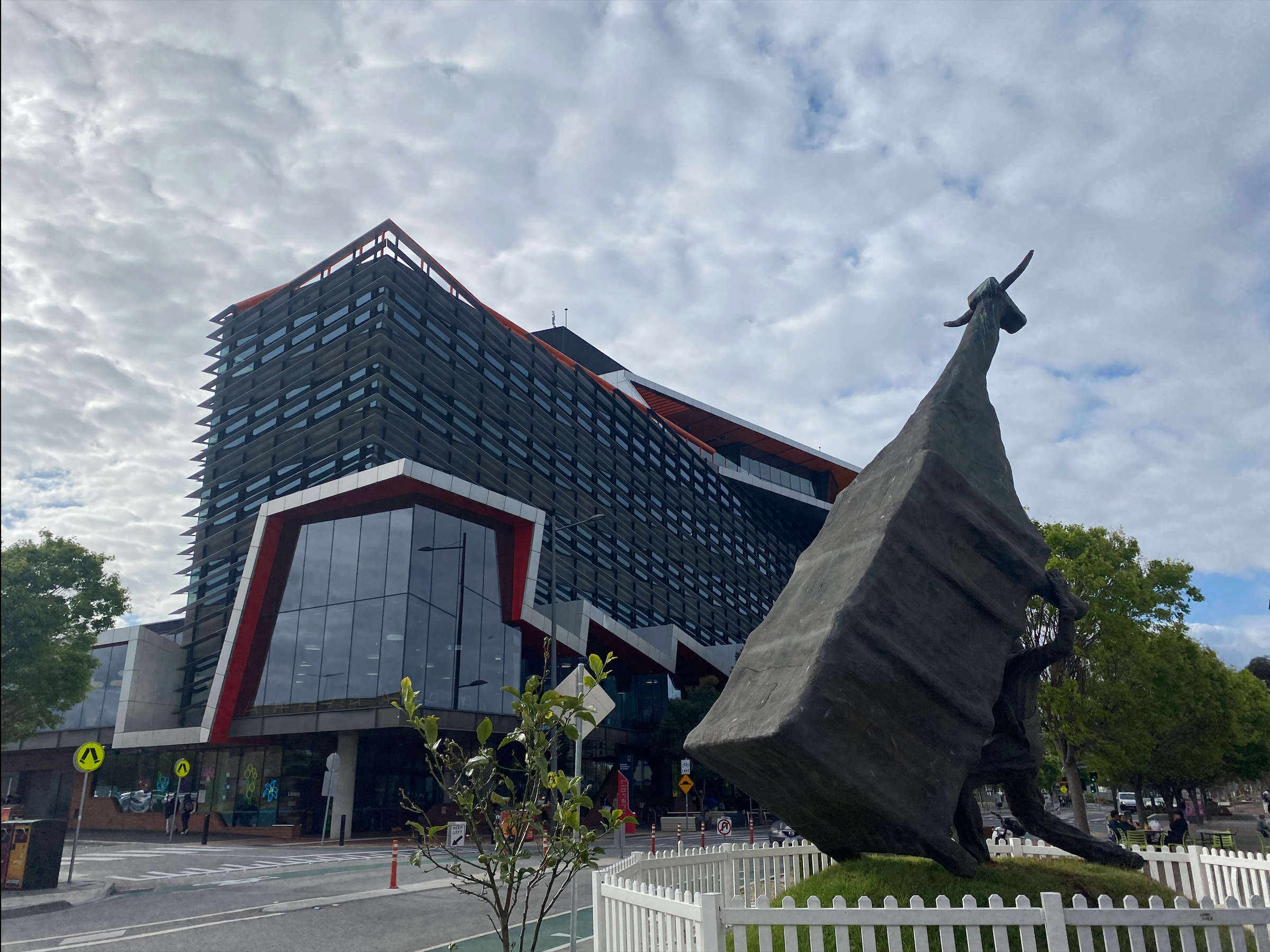
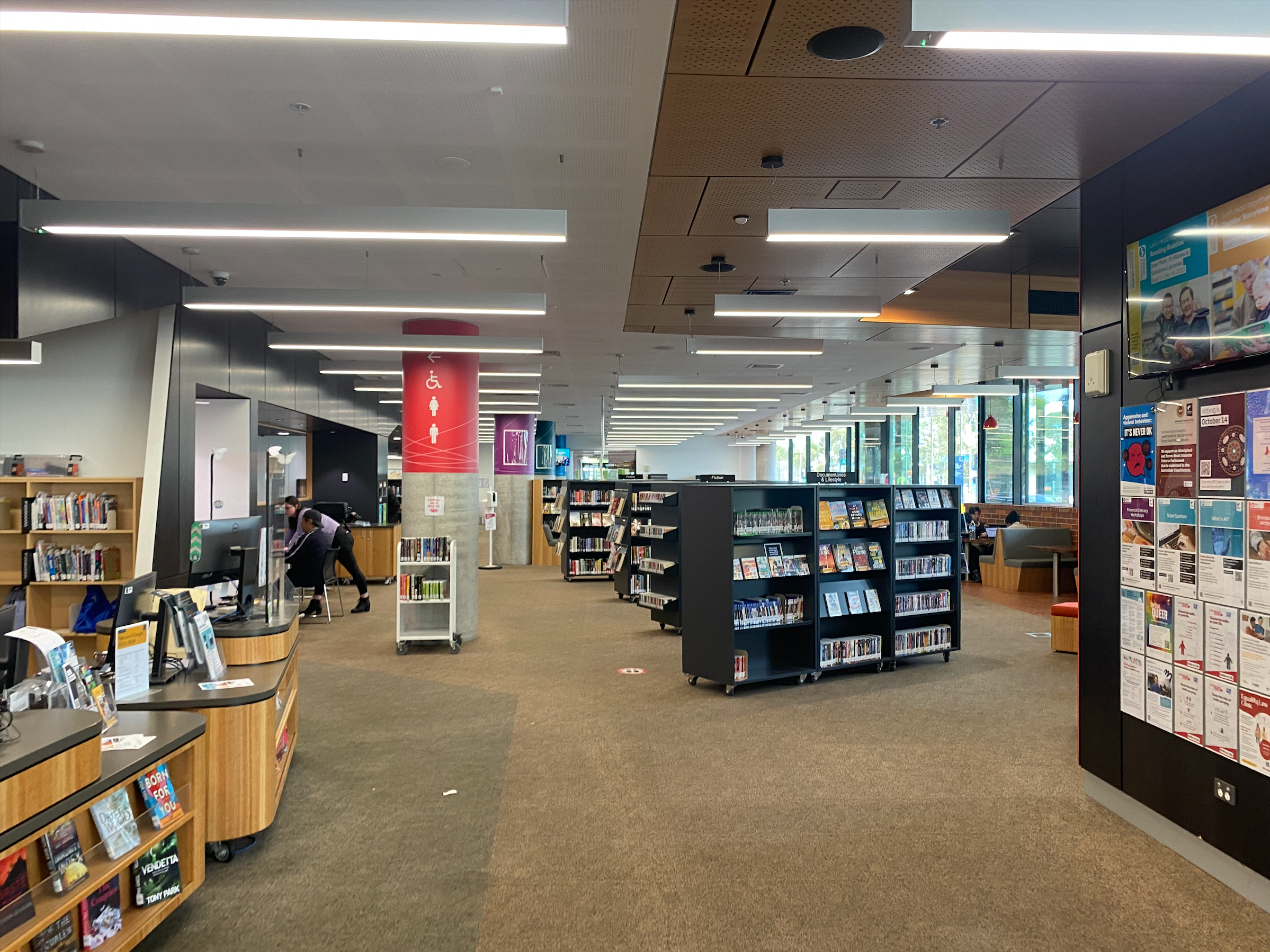
In relation to the protests and public demonstrations by both far-right and anti-Nazi groups, Anastasia had concerns about the possibility of violence, violence that is not just limited to these events but could also escalate to targeted attacks similar to the threats experienced by the cancelled drag story times earlier this year.
“We need to be known and shown, and visible so that we can turn hate into love and support, but there’s also a lot of healing and education needed within our community in terms of building and mending that relationship that connection with service providers,
“Everybody is working towards creating a safe and inclusive space for others, themselves, and especially for young people,” Anastasia said.
The area most notably affected by the mentioned party is Sunshine, where multiple rallies, meetings and protests on both anti-Nazi and far-right groups have taken place.
An investigation conducted by The Age has recently uncovered links between the Legacy Boxing Gym in Sunshine, where some of Victoria’s most dangerous Nazi activists learn to box.
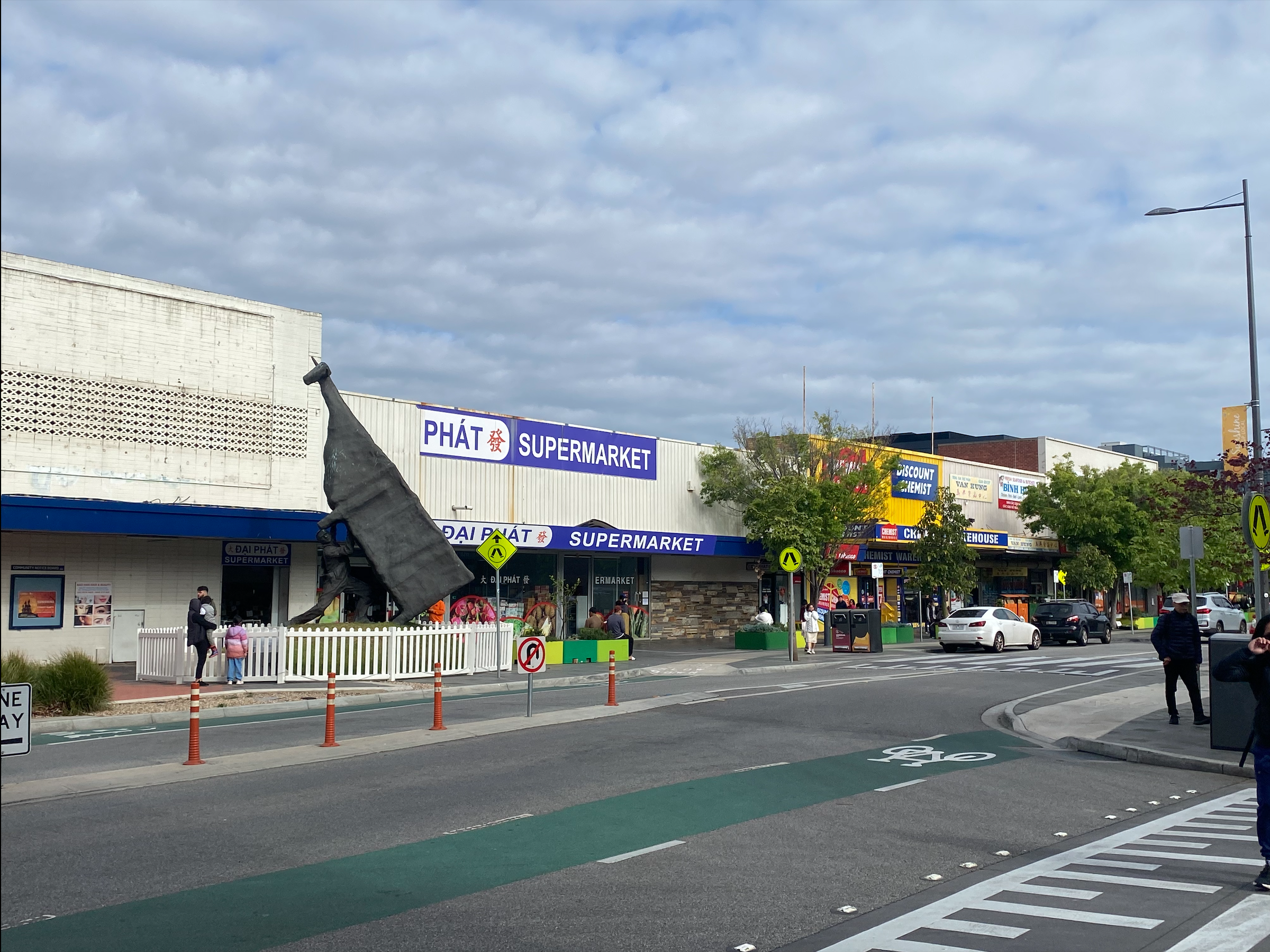
The Anti-Nazi Protest
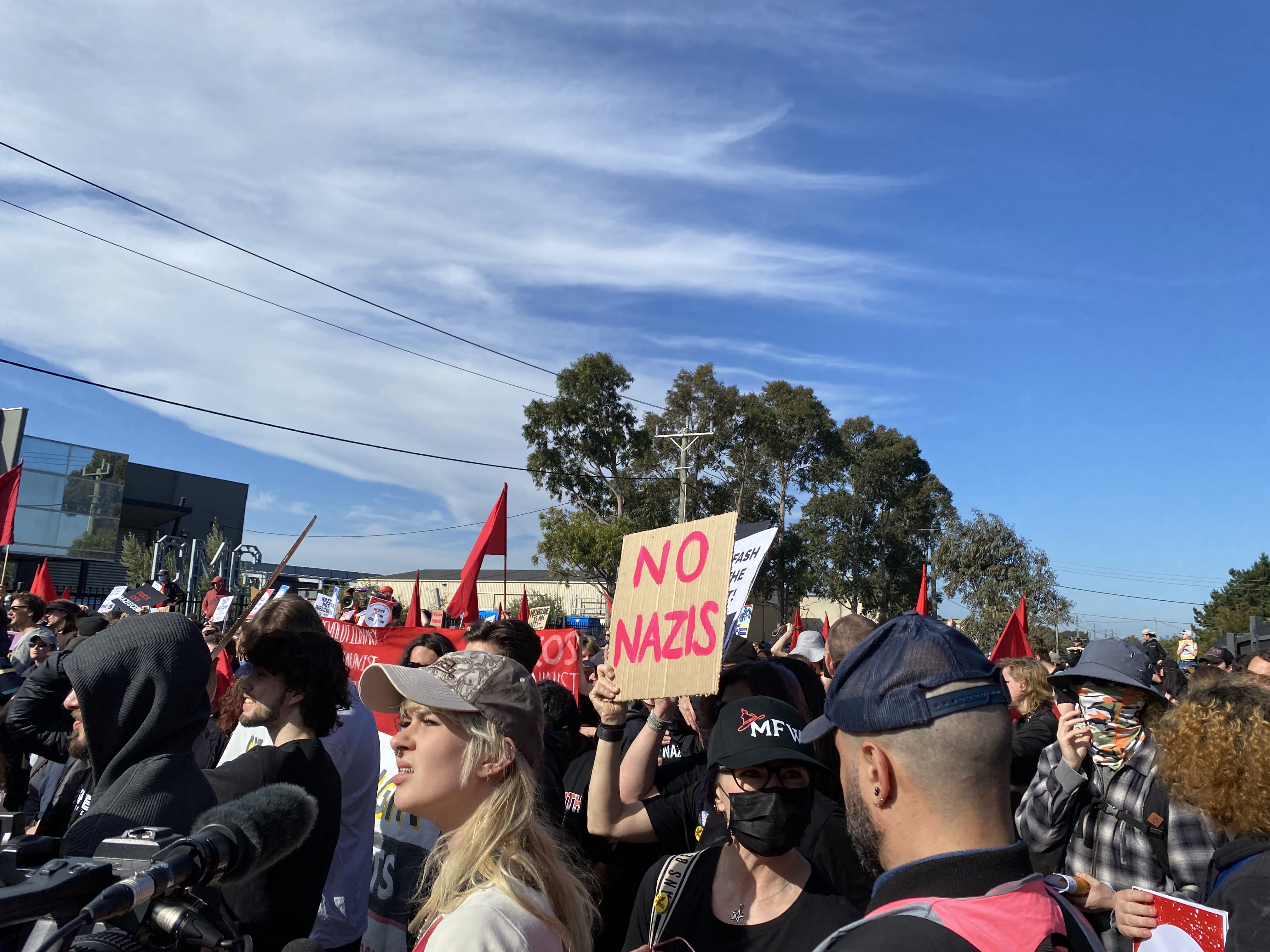
Far-right groups protesting LGBTIQA+ events have significantly increased over the past year in Melbourne. One of the most prevalent protests occurred in April, where a Monash City Council Meeting was targeted by nearly 200 protesters who were against a drag story time event scheduled for the International Day against Homophobia, Biphobia and Transphobia.
In response to this many councils have introduced stricter security measures to keep everyone safe. The Hobsons Bay City Council now requires residents to register a week prior to a council meeting and wait for confirmation before they can attend a meeting.
In late July Melbourne's west took a stand against far-right groups, protesting a neo-Nazi group operating out of Sunshine. Legacy Boxing Gym held a so-called "white powerlifting competition" and has been linked to neo-Nazi activists who box at the venue.
The Age reported prominent white supremacist Thomas Sewell was the organiser of the event, promoting it on encrypted chats as the apparent "white powerlifting competition" with speeches and seminars to be held at a secret location for pre-approved guests only.
The Campaign Against Racism and Fascism (CARF) stated, "Nazis have been organising out of a gym in Sunshine West" since the 24th of December 2022. On the 29th of July this year, CARF held a rally against the neo-Nazis and their "competition" which was seen as a recruitment event to bring in more young men to their cause. Over 350 people attended, taking to the streets to protest the white supremacist group.
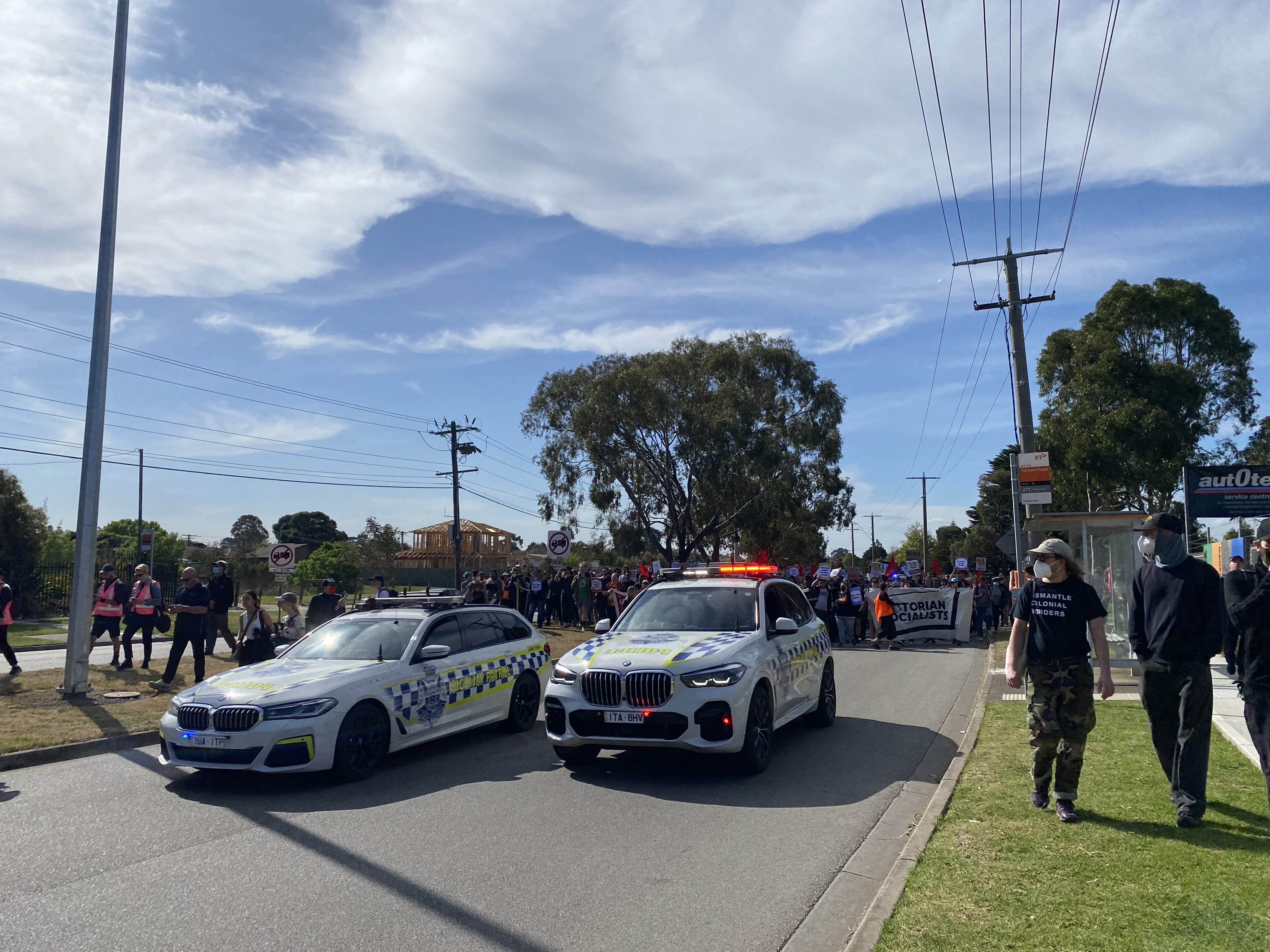
Member of CARF Ada Pascoe said "people in their houses came out into their driveways and were like what's going on? We told them we're here protesting the Nazis who are these horrible, fascist, racist and homophobic pigs and they were cheering us on.”
"It was really great to have that really lively atmosphere of people celebrating that we're there and that we're just so much bigger and stronger than the Nazis are," she said.
Pascoe believes the community has suffered a negative effect from the neo-Nazi group and has no right to operate in Sunshine, especially given its multicultural status.
"It's quite concerning and pretty upsetting that these people think that they have a place in Sunshine, which is a massively migrant population, it's really disturbing that these people think they have any place to exist there really," Pascoe said.
Fellow member of CARF Jasmine Duff believes the neo-Nazi group's aim "is to draw in more angry, violent men and build a movement that preaches hate, discrimination, and violence against the rest of Australia".
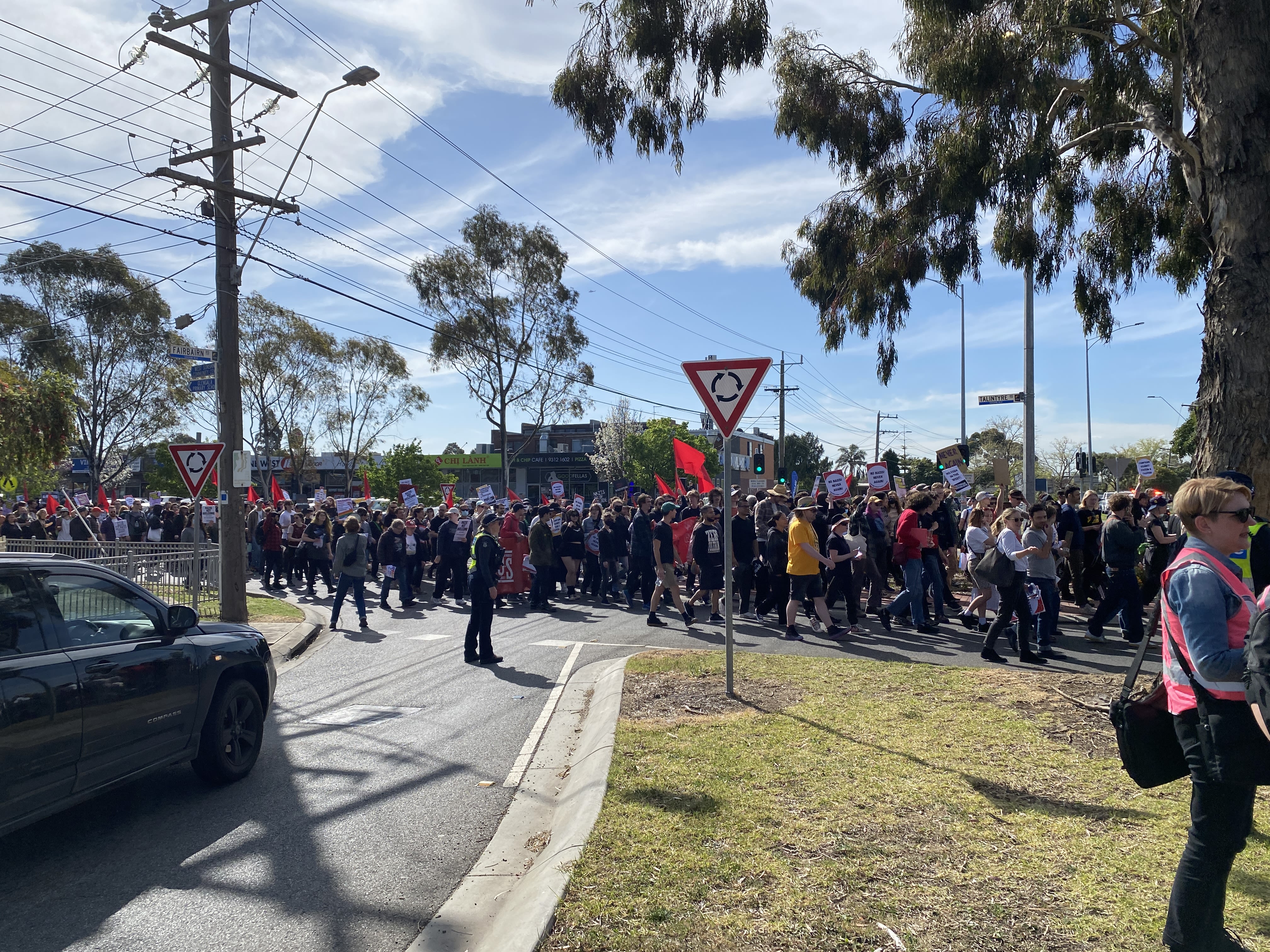
Pascoe stated, "the racism and homophobia have a really negative effect on the way these people [LGBTQIA+ people] live their lives” and can cause significant mental impact.
"What CARF is trying to do is build up a really positive response to build up the confidence to fight back against these far-right people in the community."
Pascoe hoped that organising these demonstrations would help to build up the confidence of minority groups such as migrants and the LGTBQI+ community to "actually say we don’t want you here get out".
Aside from attending the protests, Pascoe said people can help by educating themselves on what fascism is as well as who the neo-Nazi group is and what they believe in. People also had the option to attend CARF meetings to organise and promote the protests.
"At the meetings we talk about politics, and the far-right across the world as well. I think building the left is the key thing that we can combat these people (far right groups)," she said.
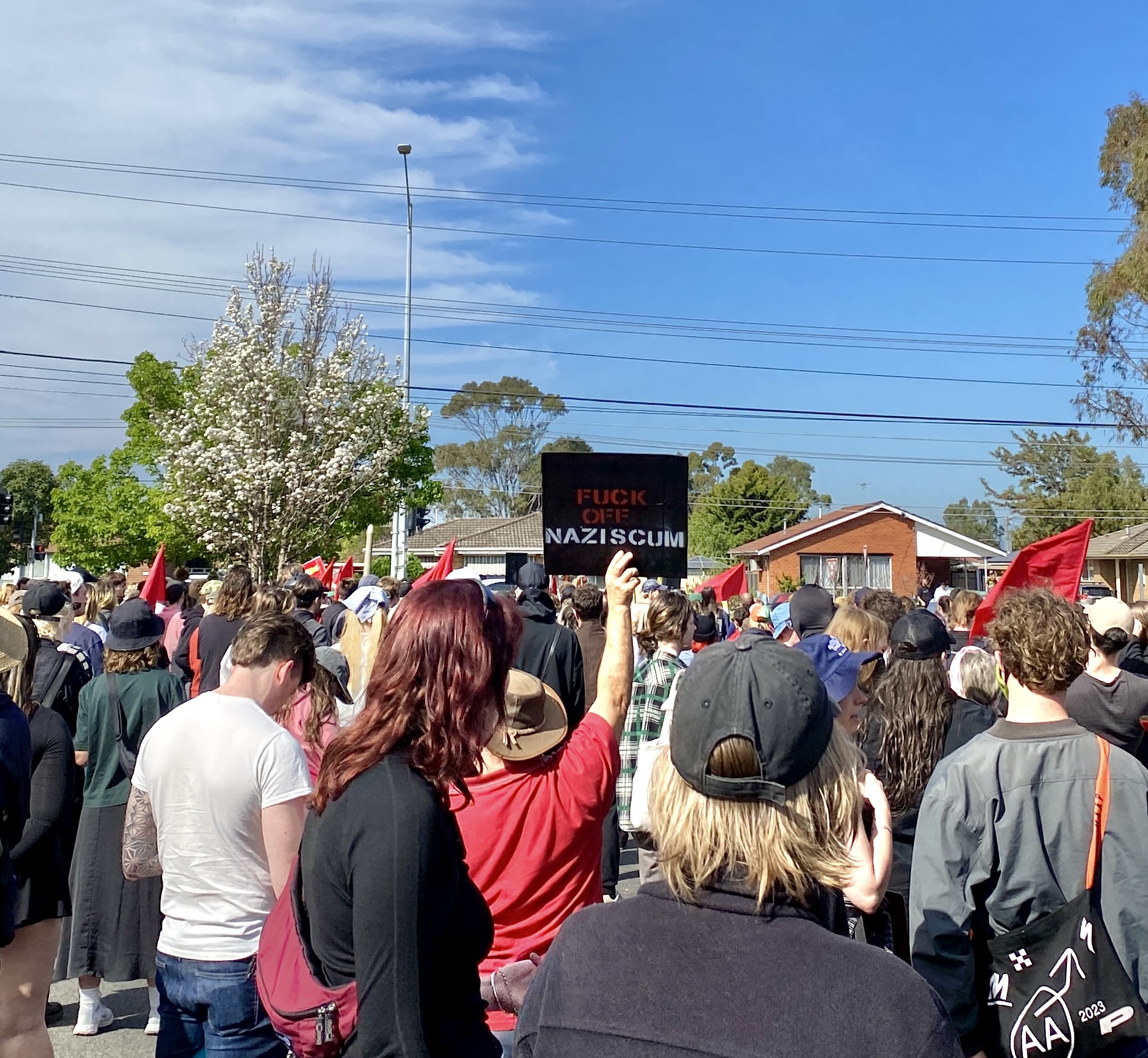
Brimbank Mayor, Cr Bruce Lancashire put out a statement in August sharing his and the council's concerns about the alleged links between Legacy Boxing Gym in Sunshine West and the activities of the neo-Nazi activists.
“Brimbank is a proudly diverse community and has been a Refugee Welcome Zone for a number of years," he said.
“Almost half our residents were born overseas, and our community is one that is welcoming, tolerant and embracing. There is no place for racism in Brimbank.
“In line with our Community Vision 2040, we want our community to be healthy and safe and united through a sense of belonging and pride.
“On behalf of our community, Brimbank City Council condemns any intolerant, racist or fascist activity - or sentiment – within Brimbank, and in any other place.
“Council does not have the power to revoke or cancel a planning permit under the Planning and Environment Act 1989.”
On the 23rd of September CARF held another protest with the intention of driving the neo-Nazi group out of Sunshine. CARF estimated that there were almost 500 people who attended the protest where they marched from the IGA car park in Sunshine West to the Legacy Boxing Gym.
Journalist Jackson Haddad had been present at the anti-Nazi protest himself, where he saw heavy police presence as people marched in solidarity on the roads leading towards the gym. Phrases like ‘no Nazis never again’, ‘will not allow their hate for LGBTQIA+ people’, and ‘when trans rights are under attack what do we do? Stand back, fight back’, were being shouted.
In particular, the protestors emphasised the protection of minority groups such as migrants, the LGBTQIA+ community and the Jewish community who have all been targeted by the neo-Nazi group.
Many members of CARF said the group had graffitied antisemitic phrases around the inner western suburbs, such as Altona. Police had set up a barricade close to the gym and guarded the premises, which from what Jackson had seen did not sit well with the protesters as they yelled, ‘shame on you for protecting them’.
Understandably, police were concerned with the vast amount of people and the possibility of conflict, so no risks were to be taken at that point.
Jackson had noticed he was being filmed by an officer and was soon approached before the march began. They questioned him, asked if he had a specific reason for being there and noted down his name, address and date of birth in their notes.
When he approached another officer later and questioned their actions, he had been told they were suspicious of him and thought he was affiliated with the neo-Nazi group, hoping he wouldn’t cause trouble that could lead to confrontation.
This came as a shock to Jackson initially but understood that there was a particular concern that the neo-Nazi group were recruiting young males into their fray, with the hopes of imparting their ideologies to them through attendance at the gym.
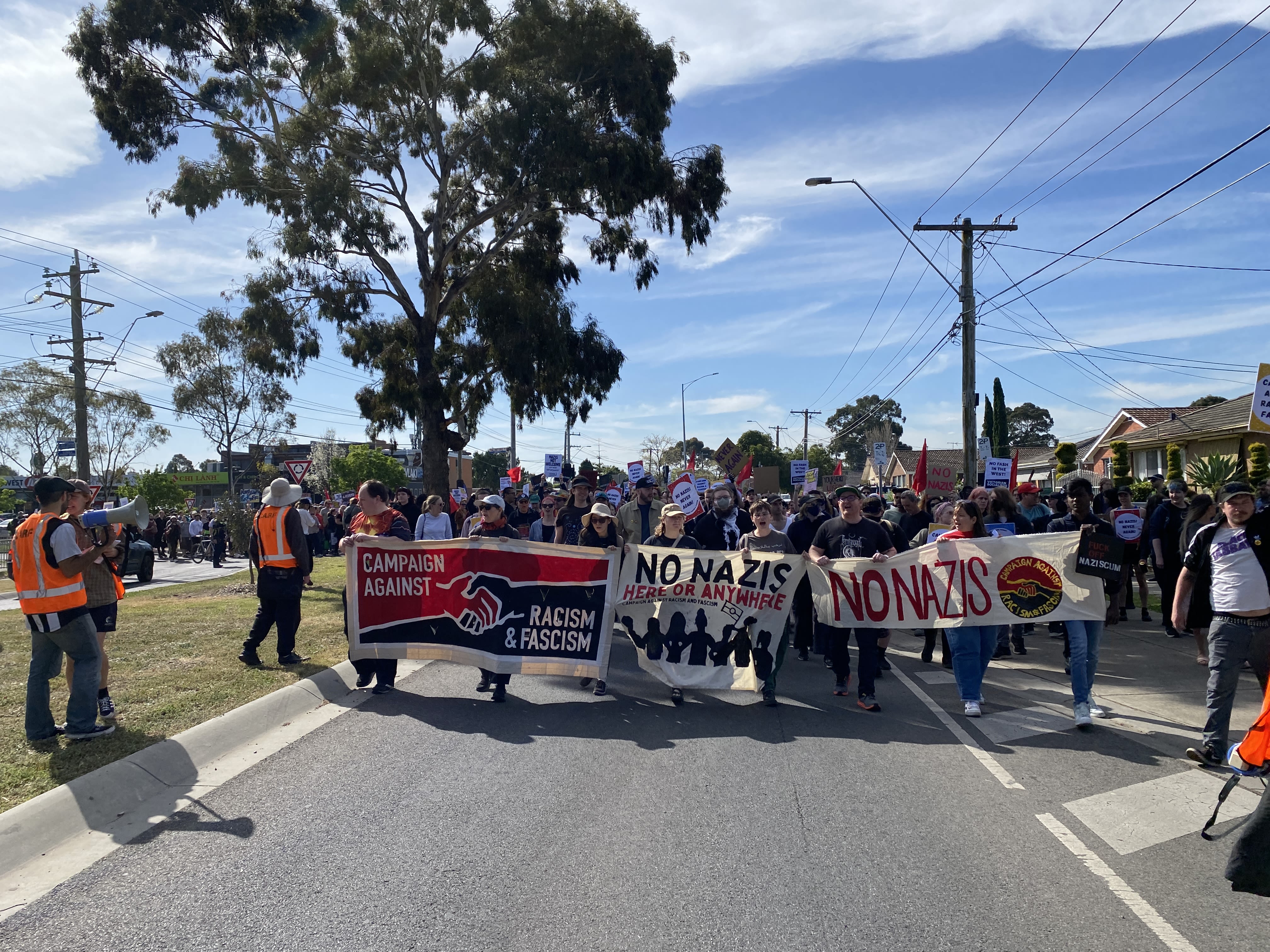
However, with the growth of the Rainbow Local Government campaign, there is hope in providing safe spaces for LGBTQIA+ and minorities to hold their activities. For Sean and others in his position, the fight goes on. When asked about the end goal, it had been difficult for him to say, not because of not knowing the next step, but because of the knowledge that this fight is a long one.
“We ran a campaign at the last local government election asking people to take a pledge to support the LGBTQIA+ community, and we’ll keep working until that’s implemented across every council in the state.”
In May of this year, local councils across the state flew the pride flag at their centres for the International Day Against Homophobia, Biphobia, Intersex and Transphobia, as a step towards the campaign’s goals.
Seeing this as a big move forward, Sean hopes more will come in the near future. Whether that may be through participation in the Melbourne Pride March or other marches in regional communities, or setting an advisory community to inform the council on issues that affect the LGBTQIA+ community and or to develop action plans to deal with said issues.
As for Sean, he’s clear that “…there’s a significant role for the local government to play in ensuring that the LGBTQIA+ community is supported, respected and affirmed for who they are.”
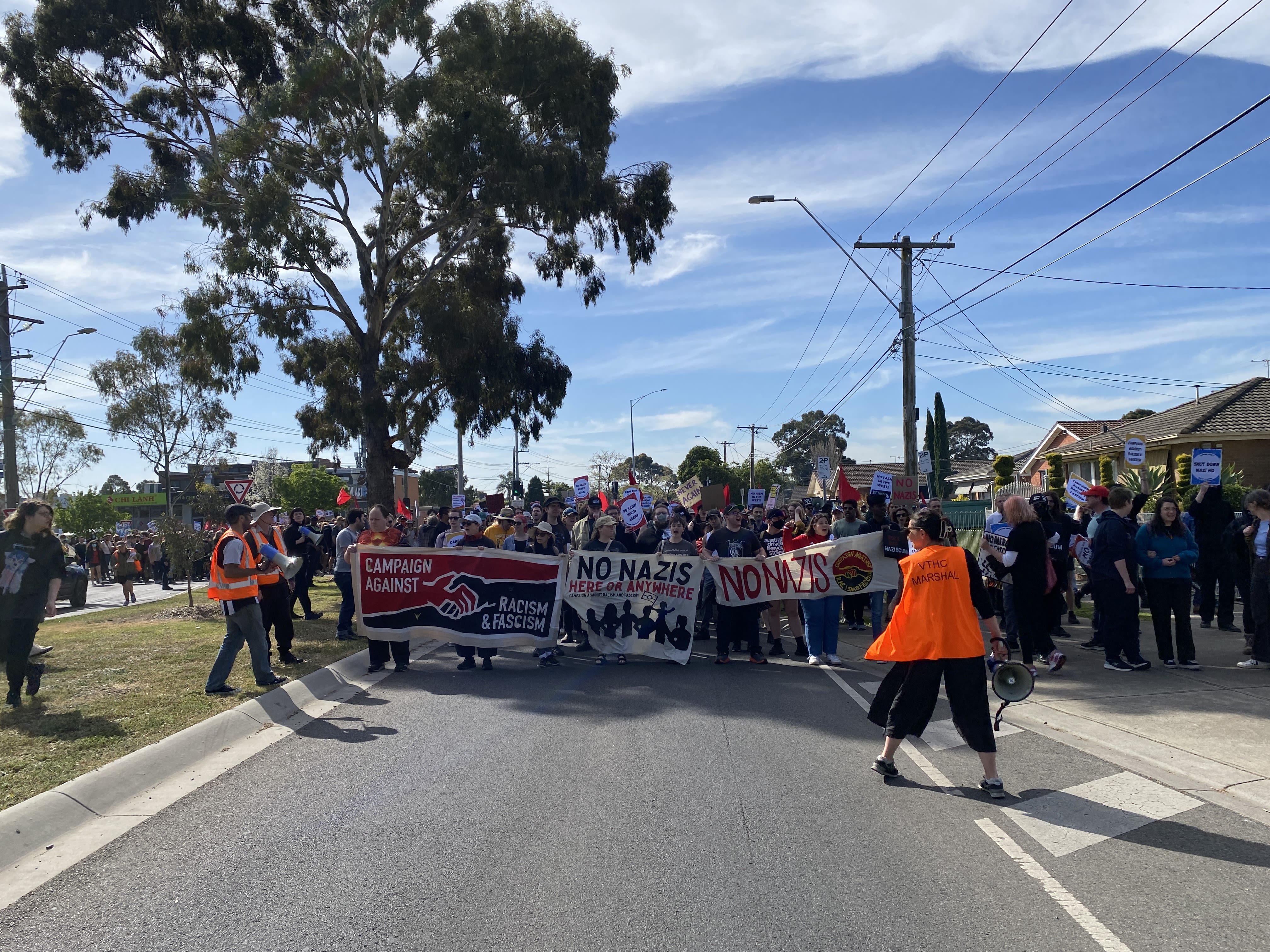
For Anastasia, education plays a large part when it comes to normalising attitudes towards the LGBTQIA+ community, in terms of acceptance and understanding of their current-day struggles. This was not addressed to just those who harbour dissent towards the community, however, but also for people who are not queer and are not aware of the ongoing discrimination.
“It’s for anybody that lives within our municipalities who may not identify as LGBTQIA+ since they are the ones who play a crucial role in creating a welcoming environment, and if you identify as an ally you cannot just stay silent,” Anastasia explained.
When asked about appropriate ways to address extremists who have been targeting LGBTQIA+ events and persons, she had kept an open mind, saying that “support and a restorative justice system would be ideal when dealing with some of these extremists,”
“They have a lot of internal issues that need to be dealt with and education may not be enough, because many of their attitudes could be stemming from generational habits and a review of our support infrastructure, creating a network of people and a change of our behavioural services would really help them understand.”
Keeping an open mind, Anastasia knew that even if all of her ideas - were they to come through - there would still be parts of a community where the people refuse to understand. She noted that there was simply nothing anyone could do and that ultimately, they are part of that diversity in a community.
“I work and live in the inner west so I’m exposed to all parties, and I can see the underlying issues there, which at the end of the day goes back to our government and how it has to change,” she proclaimed.
Access to information was another factor that needed to be addressed, with “filtering or how to sift or obtaining the most human-centric information that people expose themselves to would be an ideal approach,” Ms Le said.
As it stands, the LGBTQIA+ community in the inner-west, alongside other minority groups have a lot to look forward to when it comes to creating an inclusive environment for gathering and socialisation. Although, the process is a long and dreary one, and would need the contribution and support of those who are looking to improve the safety of their community.
